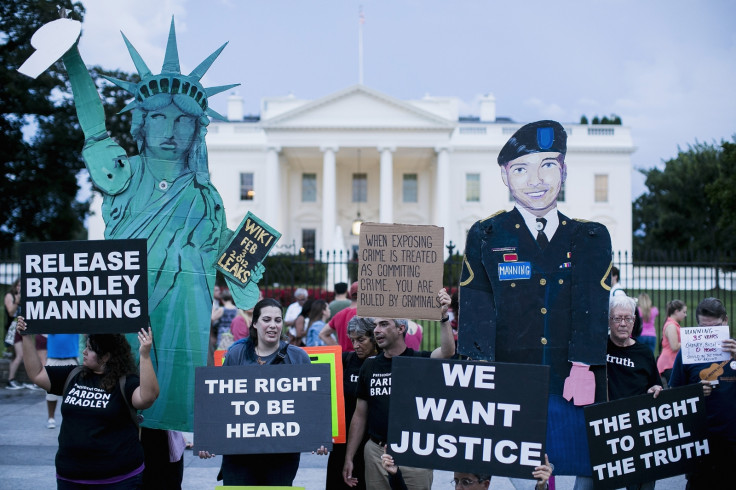WikiLeaks' source Chelsea Manning on release from prison: 'For the first time I see a future'
Manning was sentenced to 35 years in military prison for leaking secrets.

On 17 May, former US military analyst Chelsea Manning is set to be released from Fort Leavenworth prison after serving a seven-year sentence for disclosing classified data to WikiLeaks, including material that would later come to be known as the 2010 Iraq War Logs.
Four years ago, Manning was found guilty of violating the US Espionage Act and handed a 35-year term for leaked classified documents. Last year, she received clemency from US president Barack Obama in one of his final acts in office.
Now, with just over a week until release, Manning has published a statement saying she will be "forever grateful" to those who kept her alive, namechecking her legal team, supporters and Obama.
"For the first time, I can see a future for myself as Chelsea," she wrote.
"I can imagine surviving and living as the person who I am and can finally be in the outside world. Freedom used to be something that I dreamed of but never allowed myself to fully imagine.
"Now, freedom is something that I will again experience with friends and loved ones after nearly seven years of bars and cement, of periods of solitary confinement, and of my health care and autonomy restricted, including through routinely forced haircuts."
In 2013, Manning announced her intention to live as a woman through the lengthy sentence in an all-male military facility.
During her sentence, Manning made multiple suicide attempts, with her attorneys citing a fragile mental condition and extended periods of solitary confinement as contributing factors. In 2014, the American Civil Liberties Union (ACLU) sued the US Department of Defense over a refusal to treat her gender dysphoria.
Not everyone was receptive to her eventual early release, with republican senator Paul Ryan calling the move "outrageous" and claiming Manning "put American lives at risk".
"I watched the world change from inside prison walls and through the letters that I have received from veterans, trans young people, parents, politicians and artists," Manning's statement continued.
"My spirits were lifted in dark times, reading of their support, sharing in their triumphs, and helping them through challenges of their own," it added. "I hope to take the lessons that I have learned, the love that I have been given, and the hope that I have to work toward making life better for others."
The ACLU consistently petitioned the US government for leniency in Manning's case and previously sent letters urging her commutation. "We couldn't be more excited that our client Chelsea Manning will finally be a free woman next week!" it tweeted on 9 May.
Chase Strangio, staff attorney at the ACLU, said in a statement: "Like far too many people in prison, particularly transgender women, Chelsea Manning has had to survive unthinkable violence throughout the seven years of her incarceration.
"The transition out of these horrific institutions will not be easy, and part of what we hope is that Chelsea will find the space, love, and support to heal and build a life of her choosing.
"Her fight to be herself, to access the medical care that she needed, and to gain her freedom have transformed law and society for the better. Chelsea's past and future work will no doubt be a critical force in moving towards a more just society for everyone."
© Copyright IBTimes 2024. All rights reserved.






